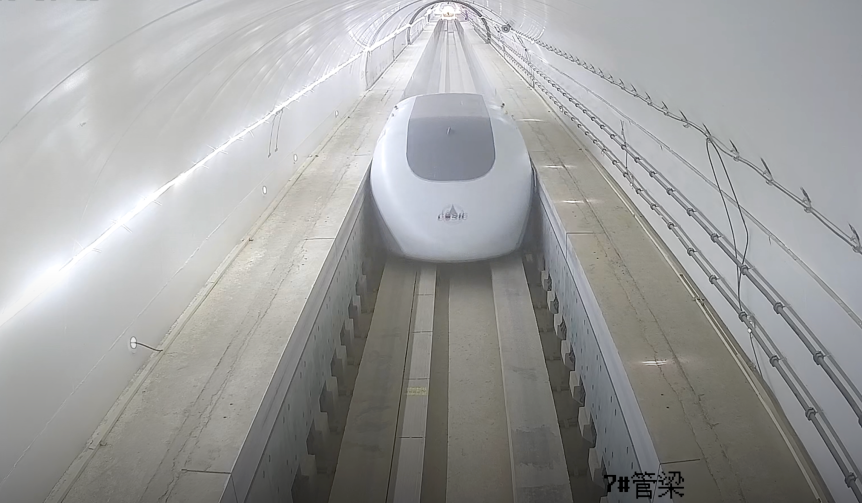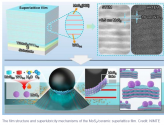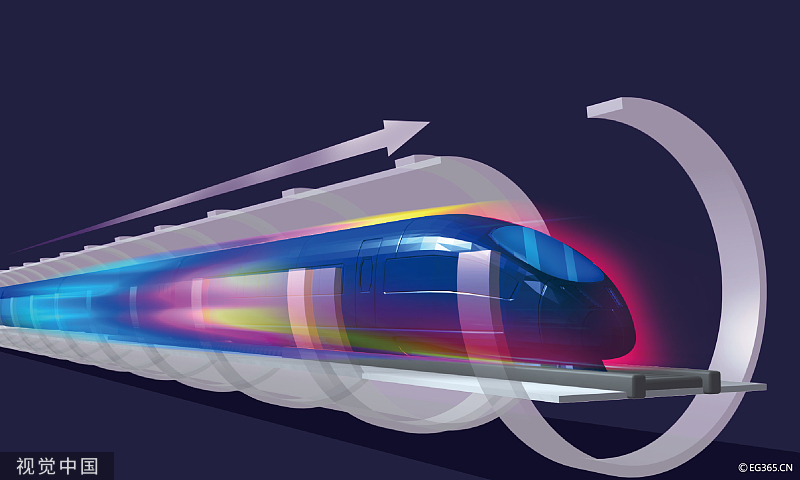Remarkable achievement. thanks to China's research in high end materials.
According to WIPO, China accounts more than 55 percent of Global total in Materials/Metallurgy patent grants.

A Chinese research team has successfully completed the country's first full-size superconducting test run for an ultra-high-speed magnetic levitation (maglev) train, which, once completed , will be capable of running at a whopping 1,000 kilometers per hour under ideal conditions.
Developed by the China Aerospace Science and Industry Corporation Limited (CASIC), the T-Flight train project aims to eventually carry passengers and cargo at a speed of 1,000km/h or faster in a low-vacuum tube, which, if successful, would be the world's fastest ground-based transport technology.
A superconducting maglev test line has been built in Datong City of north China's Shanxi Province.
"The test run from static to dynamic is an integrated test of the entire system, integrating many subsystems together. With this experiment, we can preliminarily verify the scientific rationality of the overall design of the high-speed flying train," said Li Ping, member of the project, at a science popularization exhibition about the train in Beijing.
The train will be used for commuting between mega city clusters in the future. Experts say a large number of experiments are still needed to gradually reach the 1,000km/h speed. Previously, the research team has tested a 623km/h speed under non-vacuum conditions.
"We aim to raise the speed to 1,000 kilometers per hour. Next, we will conduct more tests on Phase I test line in Datong to verify the reliability of our entire system. We will further extend our route and conduct some related verifications for longer distances and higher speeds," Li said.
According to WIPO, China accounts more than 55 percent of Global total in Materials/Metallurgy patent grants.

A Chinese research team has successfully completed the country's first full-size superconducting test run for an ultra-high-speed magnetic levitation (maglev) train, which, once completed , will be capable of running at a whopping 1,000 kilometers per hour under ideal conditions.
Developed by the China Aerospace Science and Industry Corporation Limited (CASIC), the T-Flight train project aims to eventually carry passengers and cargo at a speed of 1,000km/h or faster in a low-vacuum tube, which, if successful, would be the world's fastest ground-based transport technology.
A superconducting maglev test line has been built in Datong City of north China's Shanxi Province.
"The test run from static to dynamic is an integrated test of the entire system, integrating many subsystems together. With this experiment, we can preliminarily verify the scientific rationality of the overall design of the high-speed flying train," said Li Ping, member of the project, at a science popularization exhibition about the train in Beijing.
The train will be used for commuting between mega city clusters in the future. Experts say a large number of experiments are still needed to gradually reach the 1,000km/h speed. Previously, the research team has tested a 623km/h speed under non-vacuum conditions.
"We aim to raise the speed to 1,000 kilometers per hour. Next, we will conduct more tests on Phase I test line in Datong to verify the reliability of our entire system. We will further extend our route and conduct some related verifications for longer distances and higher speeds," Li said.


